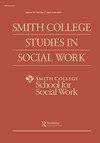深入挖掘:学校隔离与无意识种族主义的关系
IF 0.9
Q2 SOCIAL WORK
引用次数: 2
摘要
摘要尽管联邦政府制定了一项旨在建立一个更加一体化的学校系统的政策,但60多年过去了,美国的黑人和棕色人种儿童仍在与白人同龄人几乎完全隔离的学校学习。学校种族隔离的影响有据可查,结果数据继续表明,我们的孩子在教育成绩方面存在巨大的种族差异。虽然结构性种族主义是这一领域缺乏进展的主要原因,但无意识的信仰也可能在种族隔离的棘手性中发挥作用,种族隔离可能导致更大的隐性偏见。目前的研究考察了学校和社区的多样性水平、种族隔离信念和隐性种族偏见之间的关系。研究结果表明,在融合程度较低的社区接受教育的人,隐性种族偏见明显更高。为了真正影响种族隔离,社会工作者必须考虑社会因素和无意识因素之间的复杂相互作用,这两种因素都会使这个国家在教育机会方面严重缺乏公平。本文章由计算机程序翻译,如有差异,请以英文原文为准。
Digging Deeper: The Relationship between School Segregation and Unconscious Racism
ABSTRACT Although over 60 years have passed since federal policy was developed to create a more integrated school system, Black and Brown children in the US are still learning in schools where they are almost completely segregated from their White peers. The impact of segregation in schools is well documented, and outcome data continues to demonstrate significant racial disparities in educational achievement among our children. While structural racism accounts for much of the lack of progress in this area, unconscious beliefs may also play a role in the intractability of segregation, and segregation may lead to greater implicit bias. The current study examined the relationship between levels of diversity in school and community, beliefs about segregation, and implicit racial bias. Findings suggest that implicit racial bias was significantly higher for those who were educated in communities with lower levels of integration. In order to truly impact segregation, social workers must consider the complex interplay between societal factors and unconscious factors which both serve to perpetuate the staggering lack of equity in educational opportunities in this country.
求助全文
通过发布文献求助,成功后即可免费获取论文全文。
去求助
来源期刊

SMITH COLLEGE STUDIES IN SOCIAL WORK
SOCIAL WORK-
CiteScore
1.50
自引率
10.00%
发文量
10
期刊介绍:
Smith College Studies in Social Work focuses on the vital issues facing practitioners today, featuring only those articles that advance theoretical understanding of psychological and social functioning, present clinically relevant research findings, and promote excellence in clinical practice. This refereed journal addresses issues of mental health, therapeutic process, trauma and recovery, psychopathology, racial and cultural diversity, culturally responsive clinical practice, intersubjectivity, the influence of postmodern theory on clinical practice, community based practice, and clinical services for specific populations of psychologically and socially vulnerable clients.
 求助内容:
求助内容: 应助结果提醒方式:
应助结果提醒方式:


